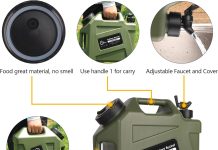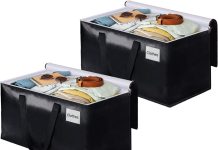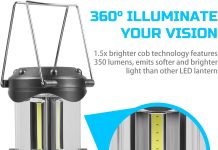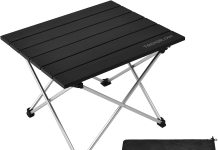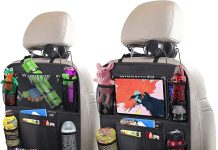Are you ready to embark on an unforgettable camping adventure? We all know that choosing the right campsite can make or break your experience in the great outdoors. But fear not, for we have the ultimate guide to help you pick the perfect spot for your epic camping trip. From breathtaking views to essential amenities, we’ll show you exactly what to look for when selecting your home away from home in nature. So get ready to explore, relax, and connect with the beauty of the wilderness as we uncover the secrets to finding your dream campsite.
Review contents
Factors to Consider
When planning an epic camping trip, there are several key factors to consider before deciding on the perfect campsite. By carefully evaluating these factors, you can ensure that you choose a campsite that meets all your needs and preferences. From location and accessibility to campground amenities and natural features, each factor plays a crucial role in creating an unforgettable camping experience.
Location
The location of your campsite is an important aspect to consider. Do you prefer a remote wilderness setting or a campsite closer to civilization? Consider the distance from your home and the travel time required to reach the campsite. Additionally, think about the surroundings you desire, such as being nestled in the mountains, surrounded by forests, or near a lake or river. The location of your campsite sets the stage for your camping adventure, so choose wisely.
Accessibility
Another crucial factor to consider is the accessibility of the campsite. Evaluate the mode of transportation you plan to use, whether it be a car, RV, or even hiking in. Check the road conditions leading to the campsite and ensure that there are suitable parking options available. If you or someone in your group has special needs, make sure the campsite is easily accessible for them as well.
Campground Amenities
Campground amenities can greatly enhance your camping experience. Consider the facilities you desire, such as restroom and shower facilities, laundry facilities, and potable water availability. Evaluate if the campground has a camp store or supplies in case you need anything during your stay. Additionally, check for amenities like internet access, electricity hookups, dump stations for RVs, and pet-friendly options. If you enjoy campfires, verify if campfires are permitted at the campsite.
Natural Features
The natural features of a campsite can greatly contribute to the overall ambiance and enjoyment of your camping trip. Identify the preferred scenery, whether it be breathtaking mountain views, serene forests, or picturesque lakeshores. Consider the elevation and presence of mountains if you enjoy hiking or mountaineering. Evaluate the proximity to water bodies if you enjoy fishing, swimming, or water activities. Take into account the tree coverage if you prefer shaded campsites. Lastly, consider the presence of wildlife and the potential for wildflower displays or beautiful fall foliage.
Size of Campsite
When selecting a campsite, it is essential to assess the size of the site. Check the dimensions of the campsite to ensure it can accommodate your tent or RV comfortably. Consider the size of your equipment and whether it will fit within the designated area. Additionally, evaluate if there is enough space for outdoor activities, such as setting up a campfire or playing games.
Privacy
Privacy is an important factor to consider, especially if you prefer a more secluded camping experience. Check the campsite layout and determine how close neighboring sites are. Consider the distance between sites to ensure you have enough privacy and space for your group. Assess the surrounding vegetation to see if it provides any natural separation between sites. If you prefer more solitude, look for campgrounds that offer secluded or primitive options.
Terrain
The terrain of the campsite can have a significant impact on your camping experience. Evaluate if the surface is flat or sloping, as this will affect the ease of setting up your tent or parking your RV. Check if there are suitable tent or RV pads available that provide a level surface. Consider the drainage of the site in wet conditions to avoid potential flooding. Lastly, assess the accessibility for wheelchairs if anyone in your group requires it.
Weather
The weather is an important consideration when selecting a campsite. Research the typical weather patterns and conditions during the time of your camping trip. Consider factors such as temperature, rainfall, wind, and the likelihood of severe weather events. While you cannot control the weather, choosing a campsite that aligns with your preferences and provides adequate shelter can help ensure a comfortable camping experience.
Proximity to Activities
If you plan to engage in specific activities during your camping trip, such as hiking, fishing, or kayaking, it is important to consider the proximity of the campsite to these activities. Evaluate how far you will need to travel to reach the desired locations and factor in any travel time or additional costs associated with it. Choosing a campsite that is near the activities you enjoy can save time and enhance your overall camping experience.
Availability
Lastly, the availability of the campsite is an important factor to consider. Some campgrounds require reservations, especially during peak seasons, so it is crucial to check for reservation requirements in advance. Consider the seasonal availability of the campsite and whether it aligns with your preferred camping dates. Evaluate the crowd levels at the campground and consider if you prefer a more quiet and peaceful camping experience or a livelier environment. Additionally, assess the popularity of the campground to ensure it aligns with your preferences.
Researching Potential Campsites
Once you have identified the key factors to consider while selecting a campsite, the next step is to research potential campsites that meet your criteria. Utilizing online resources is an excellent starting point. There are several dedicated websites and forums where fellow campers share their experiences and provide valuable insights. Reading reviews and ratings can give you an idea of the campground’s quality, facilities, and overall atmosphere.
Consider reaching out to friends and family who have gone camping before and ask for their recommendations. Personal referrals can often lead to hidden gems and unforgettable camping experiences. Additionally, check social media groups dedicated to camping and outdoor enthusiasts. These communities are a great place to seek recommendations, ask questions, and connect with like-minded individuals who share your passion for the outdoors.
Don’t forget to contact local visitor centers or tourism offices in the area you plan to camp. They can provide valuable information and recommendations based on their local knowledge. Outdoor enthusiast communities, such as hiking or fishing clubs, can also be a great resource for finding suitable campsites. Attending outdoor expos or camping events can provide an opportunity to gather information, meet campground representatives, and get a firsthand look at campsite options.
Visiting campground websites is another essential step in researching potential campsites. Campground websites often provide detailed information about their facilities, amenities, and location. You can also find photographs and maps to get a better understanding of the campsite’s layout and surroundings. Reviewing campground directories, both online and in print, can provide a comprehensive list of campgrounds to consider. Lastly, consider utilizing campground apps, which provide user-friendly interfaces, real-time availability, and helpful filters to narrow down your options.
Determining the Location
Once you have gathered a list of potential campsites, it’s time to determine the ideal location for your camping trip. Consider the distance from your home and the travel time required to reach the campsite. Determine how far you are willing to drive or how long you are willing to travel to reach your destination. Keep in mind that a long journey may require additional planning, including overnight stays or meal preparations.
Identifying your preferred surroundings is also crucial. Do you want to be surrounded by towering mountains, lush forests, or pristine lakeshores? Determine the type of scenery that appeals to you and consider campsites located in those areas. Research nearby attractions and activities to see if they align with your interests. If you plan to explore the local area, check the proximity to facilities such as grocery stores, restaurants, and medical services.
While planning your camping trip, it is vital to check for any safety considerations in the area. Research the terrain, wildlife, and potential hazards, such as extreme weather events or natural disasters. Stay informed about any safety guidelines or regulations specific to the region you plan to visit. Additionally, ensure that there is adequate cellphone reception at the campsite to stay connected and for emergency purposes.
Accounting for both travel time and costs is essential when determining the location of your campsite. Evaluate the distance you will be traveling, the mode of transportation, and any associated expenses such as fuel costs or campground fees. Consider alternative routes or transportation options if they can help reduce travel time or costs. Remember to factor in the time required for setup and breakdown at the campsite.
Assessing Accessibility
When assessing the accessibility of a campsite, consider the mode of transportation you plan to use. Check if the campsite is accessible by car, RV, or if you need to hike in. For car or RV camping, evaluate the road conditions leading to the campsite. Are the roads well-maintained and suitable for your vehicle? Ensure that there are parking options available, especially if you’re bringing an RV or towing a trailer.
If you or someone in your group has special needs, it is crucial to ensure that the campsite is easily accessible. Check if there are paved paths, ramps, or accessible facilities such as wheelchair-friendly restrooms or showers. Consider any mobility challenges and discuss the accessibility features with the campground staff before making a final decision.
Evaluating Campground Amenities
Campground amenities play a significant role in enhancing your camping experience. Determine the facilities and amenities you desire in a campsite. Restroom and shower facilities are essential considerations for many campers. Evaluate the cleanliness and availability of these facilities, as well as whether they are suitable for your needs. If you plan to stay for an extended period, consider laundry facilities to keep your clothes clean.
Check if the campsite provides potable water, either through faucets or water stations. Access to clean drinking water is vital during your camping trip. Additionally, assess if the campground has a camp store or supplies available. Having access to basic necessities, such as food, firewood, or camping gear, can be convenient in case you forget to bring or run out of essential items.
For those who need to stay connected, consider if the campground offers internet access. While disconnecting from technology is often part of the camping experience, having internet access can be beneficial for emergencies or staying connected with loved ones. If you plan to camp in an RV or require electricity for your equipment, look for campgrounds that offer electricity hookups.
Review the availability and location of dump stations if you’re camping in an RV. Proper disposal of wastewater is essential. Check if the campground has designated areas for emptying gray and black water tanks. If you plan to bring along your furry friends, verify if the campsite offers pet-friendly amenities such as dog parks or walking trails. Finally, ensure that the campground permits campfires if you enjoy sitting around the warm glow of a campfire at night.
Considering Natural Features
The natural features surrounding a campsite can greatly impact your camping experience. Consider the type of scenery you prefer, such as mountains, forests, or water bodies. Identify the preferred natural features that create the atmosphere you desire during your camping trip. Research if the campsite is situated at a higher elevation, offering breathtaking views and opportunities for hiking or mountaineering.
Evaluate the proximity to water if you enjoy activities such as fishing, swimming, or boating. Campsites near lakes, rivers, or the ocean provide opportunities for water-based adventures. Consider the presence of trees and evaluate the tree coverage at the campground. If you prefer shaded campsites, look for options with ample tree cover. Keep in mind that dense tree coverage may also affect the amount of available sunlight.
Take into account the potential wildlife encounters during your camping trip. Research the types of wildlife that inhabit the area and learn about any safety precautions or regulations. If you are a nature enthusiast, consider a campsite that offers the chance to spot wildlife in their natural habitat. Lastly, check if the campsite offers the opportunity to witness wildflower displays or stunning fall foliage if you plan to visit during the respective seasons.
Assessing the Size of Campsite
The size of the campsite is an important consideration to ensure that it can accommodate your camping setup comfortably. Check the dimensions of the campsite and compare them to the size of your tent or RV. Ensure that there is enough space to properly set up and maneuver around your equipment. If you plan to engage in outdoor activities, such as setting up a campfire or playing games, consider if there is enough space to do so within the campsite area.
Ensuring Privacy
Privacy is often a desirable aspect of camping, allowing you to disconnect from the outside world and enjoy your surroundings. When assessing the privacy of a campsite, check the campsite layout. Determine how close neighboring sites are and evaluate if there is enough distance between them to provide a sense of privacy. Assess the surrounding vegetation and consider if it offers natural separation or barriers between campsites. If you prefer a more secluded experience, look for campgrounds that offer secluded or primitive options.
Considering Terrain
The terrain of a campsite can greatly affect your camping experience, particularly when it comes to setting up your tent or parking your RV. Evaluate if the surface is flat or sloping, as a level surface is essential for a comfortable camping setup. Check if the campsite provides suitable tent or RV pads that offer a level surface. Additionally, consider the drainage of the site in wet conditions to avoid potential flooding. If anyone in your group requires wheelchair accessibility, assess if the campsite provides suitable terrain and accessibility features.
Checking Availability
Availability is a crucial factor to consider when selecting a campsite. Some campgrounds have seasonal availability, so it is important to check if the campsite is open during your preferred camping dates. Additionally, some popular campgrounds may require reservations in advance, especially during peak seasons. Ensure that you are aware of any reservation requirements and make necessary arrangements. Evaluate crowd levels at the campground and consider if you prefer a more peaceful and solitude-focused camping experience or a busier and livelier atmosphere.
Consider the availability of campsites on weekdays versus weekends. Weekdays often offer a more quiet and less crowded camping experience, while weekends tend to be busier with more campers. Lastly, assess the popularity of the campground you are considering. Highly sought-after campgrounds may have limited availability and require booking well in advance.
By carefully considering these factors and thoroughly researching potential campsites, you can select the perfect campsite for an epic camping trip. Remember to evaluate your preferences, necessities, and desired activities to create a camping experience tailored to your needs. Whether you seek a remote wilderness adventure or a family-friendly campground, there is a perfect campsite out there waiting for you. Happy camping!



